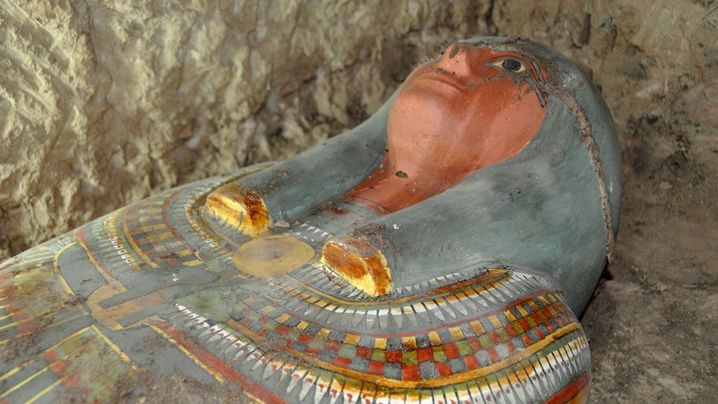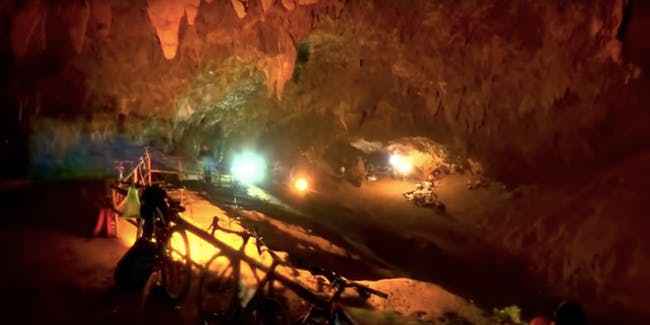
A millennia-old mummy has been uncovered in a tomb on the banks of the Nile River, in Luxor, about 700kms south of Cairo in Egypt.
The Egyptian Ministry of Antiquities announced on Sunday a new discovery of a Pharaonic tomb at a temple in Upper Egypt’s ancient city of Luxor, official MENA news agency reported.
“The Spanish mission working at the Millions of Years Temple of ancient Egyptian King Thutmose III uncovered the tomb at the external part of the southern wall of the temple,” MENA quoted Mahmoud Afifi, head of the Ancient Egyptian Antiquities Department of the ministry, as saying.
He added that the mission found a coffin with a mummy in a very good condition inside the tomb and that the initial studies indicated they belonged to a royal house servant named Amenrenef, which means the tomb may date back to the Pharaonic Third Intermediate Period around 1,000 years BC.
“The mission will do in-depth studies of the tomb and its contents to find out more about its owner,” Afifi noted.
For her part, Myriam Seco Alvarez, Egyptologist and head of the Spanish mission, said that the significance of the discovery lies in the mummy found inside the coffin, “as it contains many colored ornaments and carries a group of religious symbols in ancient Egypt.”
She noted that the symbolic inscriptions include the two protective goddesses Isis and Nephthys with their wings spread, the four sons of god Horus, the symbol for the sun disk and others.
Luxor, which is said to be containing one-third of the world’s antiquities including super famous King Tut tomb, was named by the United Nations World Tourism Organization (UNWTO) as the World Tourism Capital for 2016.













